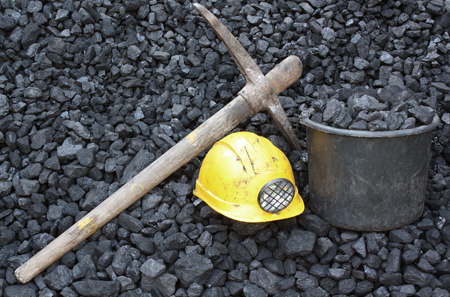Calls for a global moratorium on coal mines ignore the scale of global demand for energy, the progress made in reducing the carbon footprint of coal by up to 50 per cent and the adverse consequences for the world's poorest people of eliminating the world's most abundant, low cost energy source.
The reality is that demand for coal remains strong, particularly in Southeast Asia.
The latest Report from the International Energy Agency (IEA) forecasts that by 2040, coal will surpass oil to become the most consumed fuel in the region, and grow at 4.6 per cent per annum over the same period. Total energy demand in Southeast Asia is forecast to grow by a massive 80 per cent by 2040 with coal expected to supply 40 per cent of the growth in electricity generation. The share of coal in electricity generation in the Southeast Asia region is expected to rise from 32 per cent to 50 per cent.
Further, the IEA estimates an additional 1 billion tonnes of coal will be used in 2019 compared with today and that by 2040, global coal trade will grow by 40 per cent.
Coal will play a major role in reducing the scourge energy poverty. Of the 1.7 billion people who gained access to electricity over the past two decades, more than three-quarters (1.27 billion) gained access via coal, natural gas or oil. Less than four per cent gained access from renewable energy, compared with more than 50 per cent from coal.
Australian coal is also of a higher quality than other countries. It has a higher energy value and lower ash content, making it ideal for use in the latest high efficient, low emission (HELE) modern coal plants which is a major positive in helping to mitigate emissions in tandem with encouraging economic growth.
By arguing that we should restricting the development of Australian coal mines, we are essentially saying that demand for coal should be filled by other countries – whose coal is of a lower quality.
Australia also has a rigorous environmental approval regime so we can be assured any mine development proposal in Australia only proceeds after the world’s strictest standards are adhered to.
The Australian coal industry provides many benefits to the Australian economy and the community through jobs, investment, export income and taxes and royalties. The industry directly employs 41,000 people, paying around $6 billion in wages annually. There are an additional 111,000 employed in industries directly related to the coal industry.
Over the four years to 2018-19, total coal royalties are projected to sum $15 billion. Between 2007-08 and 2013-14, both company tax and royalties totalled $38 billion. These royalties help state governments pay for essential services like hospitals, schools and roads.




-160x160-state_article-rel-cat.png)
-160x160-state_article-rel-cat.png)
-160x160-state_article-rel-cat.png)






